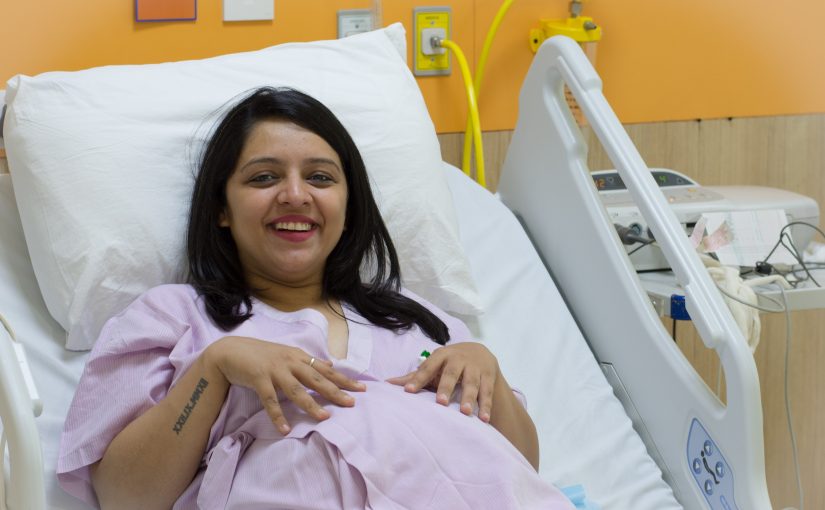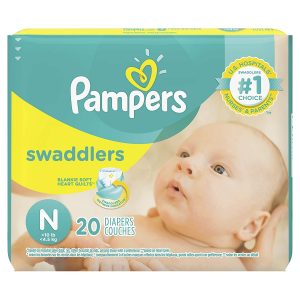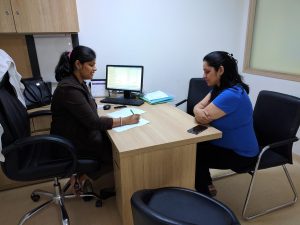It’s almost time. Your baby is gearing up for the journey from womb to your arms. Usually it’s at the 36th week, when your weekly checkups at the hospital are in full swing, that the bags need to be packed. After all any moment during this period can mark the arrival of your newborn. When I filmed the video format of it, I was in my 37th week of pregnancy. I had already made majority of my purchases, mostly online, and ready to pack them up in a systematic way to avoid any last-minute panic.
There are three major questions to consider before you pack.
 ► How long are you required to stay at the hospital? The duration of your stay does vary depending on whether you have a normal delivery or a c-section. In case of any complications, one can be asked to extend the stay as well. However, most hospitals give an estimation of the number of days. You can pack in accordance. Packing for at-least two extra days, would be prudent. In most cases it’ll be 1-2 days for normal delivery & 3-5 days for a c-section delivery.
► How long are you required to stay at the hospital? The duration of your stay does vary depending on whether you have a normal delivery or a c-section. In case of any complications, one can be asked to extend the stay as well. However, most hospitals give an estimation of the number of days. You can pack in accordance. Packing for at-least two extra days, would be prudent. In most cases it’ll be 1-2 days for normal delivery & 3-5 days for a c-section delivery.
 ► Who is going to accompany and stay with you in the hospital? This second question, takes into account their convenience, as they too need to pack in advance. Should a situation arrive, your caregiver- usually mother or partner, can be ready to move in with you in minutes.
► Who is going to accompany and stay with you in the hospital? This second question, takes into account their convenience, as they too need to pack in advance. Should a situation arrive, your caregiver- usually mother or partner, can be ready to move in with you in minutes.
► What amenities does the hospital provide? While being counselled through the delivery procedures, the hospital provided us with a list of necessities that they would provide. We noted that other than baby clothes, they had everything covered. However, we chose to carry a few of our preferred products, especially better-quality baby diapers. Similar for you, an awareness of the amenities, could help you plan your needs better.
What to pack for the newborn?
All that the newborn would use, needs to be washed in advance to avoid any infections. We neatly segregated and packed all individual items in cellophane bags, before putting it in our hospital bag. We chose a stroller instead of a hand-held bag for convenience.
 ► Clothes. The cute little onesies, vests, lowers need to take into account of the weather. Kabir was born in the winters, hence we carried 7-8 pairs of clothes in neutral colors (including onesies, pajamas, vests). Pure cotton wear is always the best for new born skin. Caps and socks are must in any weather. To avoid the baby from scratching itself, mittens are convenient. I carried 6 pairs of socks, 4 pairs of mittens and 4 caps.
► Clothes. The cute little onesies, vests, lowers need to take into account of the weather. Kabir was born in the winters, hence we carried 7-8 pairs of clothes in neutral colors (including onesies, pajamas, vests). Pure cotton wear is always the best for new born skin. Caps and socks are must in any weather. To avoid the baby from scratching itself, mittens are convenient. I carried 6 pairs of socks, 4 pairs of mittens and 4 caps.
► Swaddling Blankets. A minimum of three swaddling blankets would cover a short stay in the hospital. For a newborn the womb was a warm and snug place. Swaddling a baby mimics that, making it comfortable in a new environment.
► Diapers. While most hospitals provide diapers for the newborn, you might want to make an informed choice on it. Newborn skin is sensitive. Choosing a high-quality brand would help the newborn be comfortable for long. Some diapers come with an indicator to show when the diaper needs to be changed. If cloth diapering, do research in advance to understand the type best suited for your child. All cloth diapers need to be washed multiple times before use, to increase their absorption. 8-10 diapers per day would be a minimum for a newborn so you need to pack accordingly.
► Baby Wipes are a must. Choose a sensitive variant for newborn. Wipes will be used to clean the baby during diaper changes and post pooping. You may also choose to clean your baby’s bottom with cotton and lukewarm water. Washcloths are multi-purpose, would aid you to give your newborn a light sponge wash or clean up after breast feeding.
 ► Receiving Blanket and a Quick Dry sheet in your hospital bag will add to the comfort. You might not want your baby to be in diapers all day. A quick-dry sheet, spread underneath the baby, would avoid bed wetting. Do take time to plan a wash routine with your partner, as you might choose to send back soiled clothes to home for laundry if that’s something you have to opt for.
► Receiving Blanket and a Quick Dry sheet in your hospital bag will add to the comfort. You might not want your baby to be in diapers all day. A quick-dry sheet, spread underneath the baby, would avoid bed wetting. Do take time to plan a wash routine with your partner, as you might choose to send back soiled clothes to home for laundry if that’s something you have to opt for.
► Baby Towel. Though we didn’t intend to give our newborn a full bath at the hospital, we did carry a towel specifically assigned for our baby.
What to pack for the new mother?
For myself I carried much less. Simply because I wanted to wear hospital wear, post-delivery. Heavy bleeding often soils our clothes, hence it’s best to use the disposable hospital wear. Most of my clothes were for my return from the hospital.
 ► Clothes. Since Kabir was born in Feb (which is a bit cold), I carried two cardigans- one in pink and blue, to match my baby’s gender. Other than being a fun way to add to the happy occasion, it was quite practical as hospital environment can be quite cold. Also due to the loss of blood after delivery, a warm cardigan helps to deal with the chills.
► Clothes. Since Kabir was born in Feb (which is a bit cold), I carried two cardigans- one in pink and blue, to match my baby’s gender. Other than being a fun way to add to the happy occasion, it was quite practical as hospital environment can be quite cold. Also due to the loss of blood after delivery, a warm cardigan helps to deal with the chills.
In other garments, I packed a tank top, leggings and a pair of pajamas. All of them were stretchable as it’s difficult to gauge one’s size post-delivery. The few underwear that I carried were old, so that I could use and throw.
► For basic hygiene, Sanitary Napkins to absorb heavy flow is a must. You may also choose to carry maternity pads. Nursing Pads and Feeding Bras as they are a huge help to avoid lactation stains and discomfort.
► Hand Sanitizer and extra packs of Wipes for self, keeps any chance of an infection at bay. The rest of the toiletries like dental hygiene products and makeup (should you choose to brighten up for the first photographs), could be added later.
 ► Other important items to be packed are Identity Documents, cellphone charger, snacks that you would enjoy, hair bands or scrunchies and some entertainment for yourself like a book or headphones for music. Personally, music therapy helped me to calm down during the nervous moments. If you plan to carry a camera, don’t forget its charger. These moments would be to cherish for a lifetime. As you pack your hospital bags, do carry my loving wishes of health and happiness.
► Other important items to be packed are Identity Documents, cellphone charger, snacks that you would enjoy, hair bands or scrunchies and some entertainment for yourself like a book or headphones for music. Personally, music therapy helped me to calm down during the nervous moments. If you plan to carry a camera, don’t forget its charger. These moments would be to cherish for a lifetime. As you pack your hospital bags, do carry my loving wishes of health and happiness.
As always, I am just a comment away for any guidance or feedback. Should you choose to watch this in a video format, the link is below. Enjoy simplified parenting.










 ► The first question to address is are you ready for change? A baby upturns your existing life. Time is the first gift to your baby. The world will revolve around its needs, squeezing out the most of your energy. Emotional changes between you and your partner, due to lack of time to connect, is a reality. Physical changes also come in the package. The pregnancy weight often causes body image issues. Also, the sex life undergoes drastic changes. Unless it’s a complicated pregnancy, sex during pregnancy is not an issue, as your doctor will make you aware, the pattern of intimacy will change. Are you and your partner ready to embrace the above and more? An open conversation with your partner is much needed.
► The first question to address is are you ready for change? A baby upturns your existing life. Time is the first gift to your baby. The world will revolve around its needs, squeezing out the most of your energy. Emotional changes between you and your partner, due to lack of time to connect, is a reality. Physical changes also come in the package. The pregnancy weight often causes body image issues. Also, the sex life undergoes drastic changes. Unless it’s a complicated pregnancy, sex during pregnancy is not an issue, as your doctor will make you aware, the pattern of intimacy will change. Are you and your partner ready to embrace the above and more? An open conversation with your partner is much needed. ► Financial changes are obvious, as you budget not for the two of you but for a third member of your family. As parents, we want the best for our baby and like it or not but good quality baby products are expensive. The expenses, especially at the third trimester of pregnancy, with its many ultrasounds and medical support, only builds up to delivery and post-natal care charges at hospitals. Post-delivery the best of toys, clothes, care, nutrition, education and more, all have a financial impact. This too needs to be discussed amongst the partners are a proper budgeting should be done as per your needs & requirements.
► Financial changes are obvious, as you budget not for the two of you but for a third member of your family. As parents, we want the best for our baby and like it or not but good quality baby products are expensive. The expenses, especially at the third trimester of pregnancy, with its many ultrasounds and medical support, only builds up to delivery and post-natal care charges at hospitals. Post-delivery the best of toys, clothes, care, nutrition, education and more, all have a financial impact. This too needs to be discussed amongst the partners are a proper budgeting should be done as per your needs & requirements. ► Counselling before pregnancy is a point that I need to emphasize. No matter how well informed you are, a doctor is the best advisor. As the doctor guides you through the process of pregnancy, the changes to expect, the medical examinations to be done to ascertain you and your partners health, before conception, it irons out any misinformation that you might have. Usual tests recommended by doctors are thyroid, diabetes, heart diseases and hormonal deficiencies. This would help you to start on medications or treatment, should you need any, before embarking on the pregnancy journey. This step also helps you identify the hospital or doctor, that you can trust during pregnancy and delivery. A doctor that you trust, makes pregnancy easier and rewarding.
► Counselling before pregnancy is a point that I need to emphasize. No matter how well informed you are, a doctor is the best advisor. As the doctor guides you through the process of pregnancy, the changes to expect, the medical examinations to be done to ascertain you and your partners health, before conception, it irons out any misinformation that you might have. Usual tests recommended by doctors are thyroid, diabetes, heart diseases and hormonal deficiencies. This would help you to start on medications or treatment, should you need any, before embarking on the pregnancy journey. This step also helps you identify the hospital or doctor, that you can trust during pregnancy and delivery. A doctor that you trust, makes pregnancy easier and rewarding. ► Irregular periods can affect pregnancy in a major way. The ovulation cycle goes haywire in such cases, making it difficult to conceive. Here too, a doctor is the best counsellor.
► Irregular periods can affect pregnancy in a major way. The ovulation cycle goes haywire in such cases, making it difficult to conceive. Here too, a doctor is the best counsellor. ► Let the stress go away. Easier said than done, as I know from my personal experience, is to do away with stress. We women want to do our best to conceive and have a healthy pregnancy. For the same we try and implement lifestyle changes, even before conception. Unfortunately, this adds to our stress. Instead, it would be wonderful to enjoy an intimate and happy relationship with the partner, without constantly focusing on the pregnancy goal.
► Let the stress go away. Easier said than done, as I know from my personal experience, is to do away with stress. We women want to do our best to conceive and have a healthy pregnancy. For the same we try and implement lifestyle changes, even before conception. Unfortunately, this adds to our stress. Instead, it would be wonderful to enjoy an intimate and happy relationship with the partner, without constantly focusing on the pregnancy goal. ► My ardent request is that be patient– with yourself and the natural process of conception. Give yourself at-least a year before looking at other options like medical treatments, IVF, adoption. It’s not a snap your fingers and magic process. Allow yourself to enjoy the bond with your partner and I am sure, soon you shall have your bundle of joy.
► My ardent request is that be patient– with yourself and the natural process of conception. Give yourself at-least a year before looking at other options like medical treatments, IVF, adoption. It’s not a snap your fingers and magic process. Allow yourself to enjoy the bond with your partner and I am sure, soon you shall have your bundle of joy.